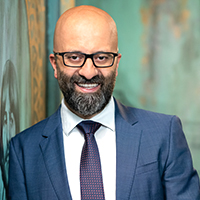After many years of hard work, you’re finally reaching the culmination of your medical training and chances are you’re weighing up options for your next move. While a common choice for a young fellow is to work in an established clinic or retain a post at a hospital, you may decide take the leap set up your own private practice. It’s a challenging road for any medical professional, especially so for new graduates — but it can be done and the rewards are significant.
If you’re committed to the goal of opening a practice, there’s no time better than now to start planning. Whether you’re only a year away from graduating, still have some time to go, or even if you have already started practicing, we’ve compiled actionable strategies to help prepare you for the road ahead.
1. Evaluate the pros and cons
From determining your own schedule and fees, to hiring a high-performing team, there are many advantages to establishing your own medical practice. However, it can also be incredibly challenging, fast-paced and all-consuming.
“The hours are long and unlike working for someone else at a hospital or medical centre, it can be difficult to switch off at the end of the day,” says Dr. Thomas Norris, a GP at Biripi Medical Centre. “It’s important to speak to other private practitioners about their experiences, so that you can weigh up the pros and cons.”
2. Build connections
Just because you’re going out on your own, doesn’t mean you have to do it alone. Building connections with other healthcare professionals before you take the leap into private practice is crucial. Some great ways you can do this include connecting with people you have studied, interned or worked with on LinkedIn, or attending networking events within your industry. Not only can these relationships turn into mutually beneficial partnerships down the line, they can also be incredible sources of referral business.
3. Plan ahead
Having a solid business plan before you take the plunge into private practice is essential for a number of reasons.
Put simply, your business plan is the road map to your success — it will give you structure and a sense of purpose. It’s also essential for proving to potential lenders that your practice is going to be financially viable.
Your business plan should cover your financial goals, ideal revenue streams, structure of the clinic, competition and how you will attract patients. You will also need to outline all the costs that will be involved in setting up your practice, including the rental costs, projected staff salaries, office and medical equipment costs and marketing expenses. With your financial goals mapped out and costs estimated, you will then be able to forecast your break-even point and project profit margins for the years to come.
4. Consider location
Where you choose to locate your practice is one of the most important factors in ensuring your venture will be successful. You will need to conduct extensive research into potential locations, including the local demographic, the amount of foot traffic, accessibility to public transport and existing competition in the area.
5. Develop your business skills
There’s no doubt that you’ve got the medical expertise, but setting up your own practice also requires entrepreneurial drive and business know-how. You may need to take some time to develop the essential skills, including financial planning, leadership, administration, human resource management and marketing. While you may eventually hire experts to take care of these aspects, you’ll need to have enough knowledge to give direction and get things up and running. Touch base with trusted and experienced mentors, and invest time in online research or courses to help you up skill in these areas.
Over to you
Opening your own private practice is a daunting yet exciting endeavour and comes with its fair share of challenges, both as a medical professional and business owner. That’s why early preparation will put you in the best possible position to pioneer long-term growth. By planning ahead, you can streamline the process for when the day comes to launch your practice. The sooner you get started, the better.
We’ve created an essential guide for young fellows seeking to open their own private practice. Simply click below and dive into your copy.
Clinic to Cloud does not provide tax, legal or accounting advice. This material is for informational purposes only and is not a substitute for independent professional advice. You should consult your own tax, legal and accounting advisors before engaging in any transaction. See the Clinic to Cloud Disclaimer for further information.




